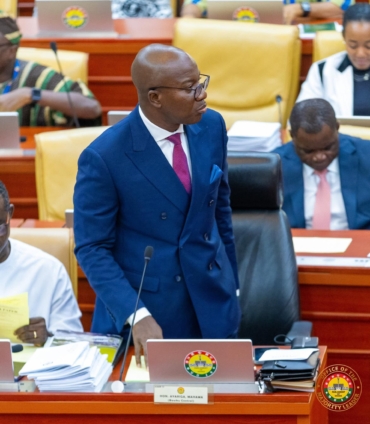The Majority Leader in Parliament, Mahama Ayariga, has announced that the Ministry of Sports and Recreation is preparing to submit a series of legisl
The Majority Leader in Parliament, Mahama Ayariga, has announced that the Ministry of Sports and Recreation is preparing to submit a series of legislative proposals aimed at strengthening the financing and governance of sports in Ghana.
Speaking on the floor of Parliament on Tuesday, October 21, 2025, Mr. Ayariga—himself a former Sports Minister—said the ministry would soon lay before the House several key bills, including the Sports Fund Bill, Sports Fund Regulations, National Sports College Bill, and an Anti-Doping Bill.
“The Ministry of Sports and Recreation will bring the following for consideration: Sports Fund Bill, Sports Fund Regulations, National Sports College Bill, Anti-Doping, and others,” Mr. Ayariga stated.
The Sports Fund Bill is expected to serve as the cornerstone of the ministry’s legislative agenda. The proposed law seeks to establish a sustainable and transparent funding mechanism for sports development, athlete welfare, and capacity building across the country.
A draft version of the bill—shared on social media by Minister for Government Communications, Felix Kwakye Ofosu, on October 10, 2025—details 14 funding sources for the Fund. These include Parliamentary allocations, sports lotteries, grants, sponsorships, donations, and revenues from betting companies.
Other potential inflows will come from gate proceeds, athlete transfer fees, sponsorship deals, and support from international sports federations. The Fund will also receive a share of competition proceeds, athlete certifications, and taxes on commercial sports vendors, ensuring a diversified and resilient financial base.
According to the proposal, the Fund will:
- Guarantee adequate and equitable funding for sports development;
- Promote transparency and accountability in resource management;
- Support sports research, innovation, and inclusion; and
- Strengthen monitoring and evaluation within the sector.
The accompanying Sports Fund Regulations will guide the Fund’s implementation once the law is enacted.
Additionally, the National Sports College Bill seeks to improve athlete and coach training through enhanced technical and academic programmes, while the Anti-Doping Bill aims to align Ghana’s sports governance with international anti-doping standards.
Together, these legislative proposals mark a significant step toward modernizing sports administration and financing in Ghana.
